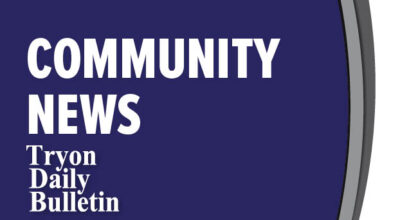Some truth about U.S. healthcare
Published 6:22 pm Tuesday, April 24, 2012
To the editor:
No, the Affordable Care Act will not ration healthcare, though this is a scare tactic often used by opponents. In a “Senior Lifestyles” column, Kauffman (4/10: TDB) described the Independent Payment Advisory Board (IPAB) as having the authority to make cuts to Medicare payments and make decisions about healthcare provision. This is false.
The law states that the IPAB begins in 2014 and “may submit recommendations to Congress every year on how best to improve quality of care for Medicare beneficiaries… IPAB is prohibited from recommending changes that would ration care, increase costs for beneficiaries, reduce benefits or change eligibility.”
So it seems clear that Congressional review is required and that rationing of care by this board is prohibited, contrary to what Kauffman wrote. Kauffman’s website shows he is a certified senior advisor, a designation which does not require professional training. He lists an MBA and 10 years as an EMT as his medical background.
In contrast to the Affordable Care Act, the Romney-Ryan budget proposal would result in what is basically a voucher program for those now 54 or younger. This would enable them to buy insurance from private insurers in exchanges (sound familiar?) with their fixed annual payment, which is paid to them by the government. Despite promises of lowering costs, Ryan provides no real details.
This is another “fixed contribution” plan, similar to the fixed contribution plans which replaced fixed benefit plans for retirement. If any of you have lived through this delusion, you know what happened to you when the stock market tumbled. What will happen if private insurers and drug companies are in charge and health care costs continue to escalate? How much will your voucher be worth then?
The Affordable Care Act is despised by insurance companies because it puts some power in the hands of patients and consumers, levels the playing field for sick and well alike and gives patients and consumers the right to question insurer decisions.
No other major industrial power pays what the U.S.A. pays for health care. As a percentage of GDP Switzerland, one of those countries some describe as “socialist” pays 11 percent. Taiwan, with its single payer system in which each subscriber has all their health information on a card that is swiped at each medical visit, pays 7 percent of GDP on healthcare. No nation other than the U.S. pays more than 12 percent of its total economy on health care. The United States pays 17 percent of GDP on healthcare.
Some think our costs are high because we have the best health care in the world. Actually, that is not true. We are not leaders in any major health statistics, such as healthy life expectancy, infant mortality or patient satisfaction. In fact, we lag behind countries which pay less and have every citizen covered.
So why would anyone not want a major overhaul of such a broken system? Why is there such resistance? While I don’t know anyone’s private motivations, I do ask myself if opponents are stakeholders who don’t want things to change because of their own payoff, financial or emotional or political, for keeping things the way they are. Don’t let innuendo and scare tactics blind you to the truth. Find out the facts before you decide. They are available.
– Faith Weathington, Tryon




